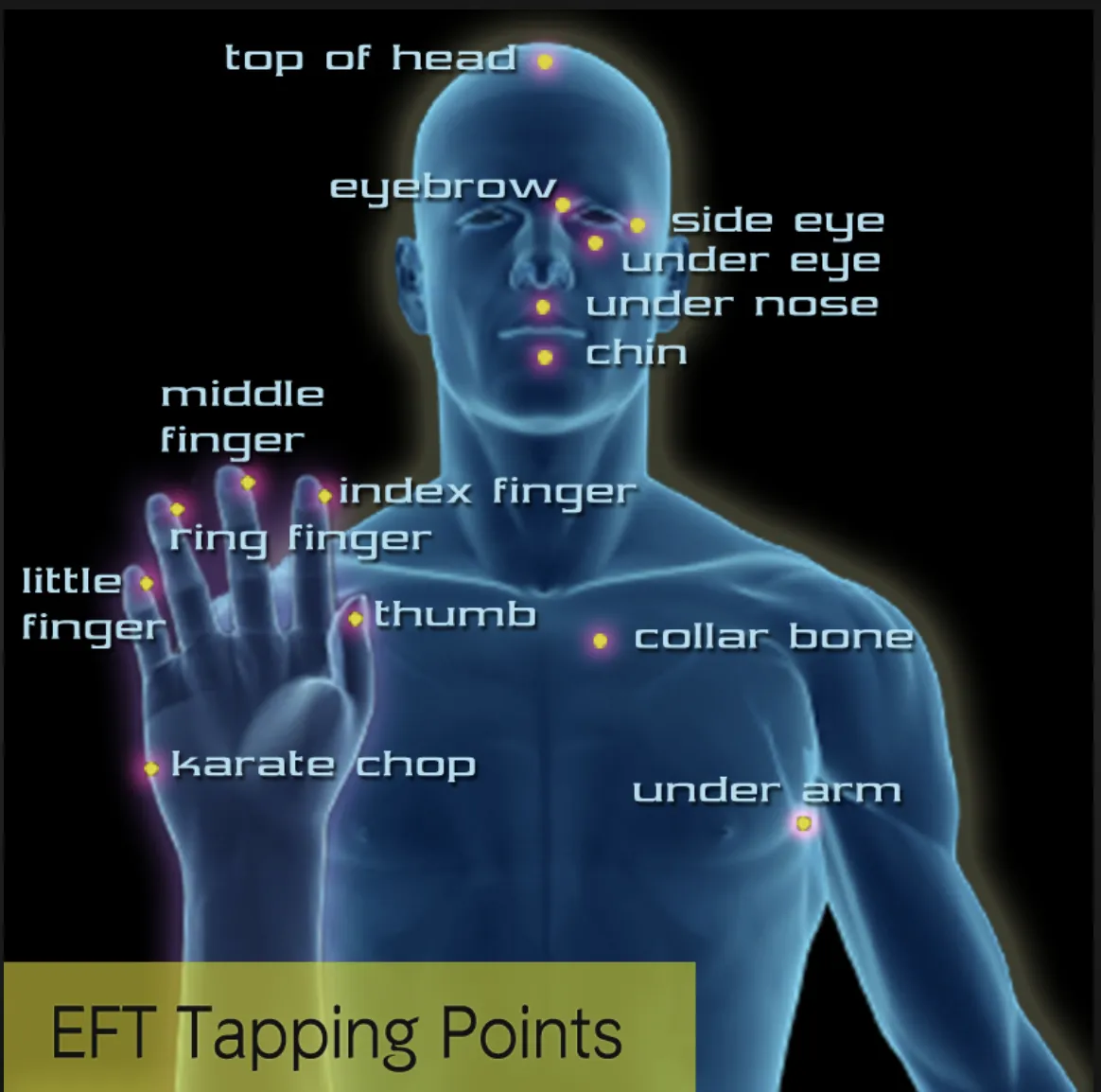GRIEF & LOSS
GRIEF & LOSS
What it is:
Grief can be one of the most overwhelming emotions we experience. It often follows the death of a loved one, but it can also arise after other losses — relationships, health, home, or even a way of life.
Common symptoms:
Deep sadness, emptiness, or longing
Anger, guilt, or regret
Exhaustion or sleep problems
Loss of motivation or interest in life
Feeling disconnected or isolated
How EFT can help:
EFT (Emotional Freedom Techniques, or tapping) offers a gentle, practical way to release the intensity of grief. It doesn’t take away the love or the memories — but it can ease the pain, reduce feelings of overwhelm, and help you find moments of peace and comfort.
Understanding Grief:
Grief is one of the most powerful and universal human experiences. It follows the loss of a loved one, but can also appear after changes like divorce, loss of health, a home, or even a way of life. Everyone grieves differently, but it’s common to feel waves of sadness, longing, or emptiness that seem overwhelming.
Common Symptoms of Grief:
Deep sadness, crying spells, or emotional numbness
Anger, guilt, or regret
Trouble concentrating or feeling “in a fog”
Sleep difficulties and fatigue
Loss of motivation or interest in daily life
Feeling disconnected or alone
More on Grief & Loss:
Different Types of Grief
Anticipatory grief – when loss is expected (e.g. illness) but hasn’t yet happened.
Complicated grief – when the intensity doesn’t lessen with time and daily life feels impossible.
Secondary losses – grief not just for the person, but for future plans, identity, and stability.
The Body’s Response to Grief
Grief isn’t just emotional — it affects the whole body.
Common physical effects include:
Weakened immune system.
Changes in appetite or digestion.
Increased blood pressure or heart palpitations.
“Grief brain” → foggy memory and poor concentration.
Why EFT Works for Grief
Tapping helps signal safety to the brain and body, so the nervous system can relax.
By gently acknowledging emotions, it prevents the “fight-flight-freeze” loop from taking over.
Studies show EFT can reduce symptoms of anxiety, depression, and PTSD — all of which can accompany grief.
Affirmation for Grief
“I honour my love and my loss. It’s safe for me to feel, and it’s safe for me to heal.”
How EFT Can Help:
EFT (Emotional Freedom Techniques, often called “tapping”) combines gentle tapping on acupuncture points with acknowledging thoughts and feelings. Research suggests that EFT helps calm the body’s stress response (the fight-or-flight system), lowers cortisol levels, and promotes emotional regulation.
By using EFT, you can:
Release the intensity of overwhelming emotions
Feel calmer and more grounded in the present
Reduce physical symptoms like tightness in the chest or stomach aches
Honour your grief while creating space for peace and healing

FAQS
Do I need a practitoner?
Not at all — you can do EFT by yourself using the tapping points and some simple phrases. But if you’re working through something very deep or painful, a practitioner can guide you safely and help you go further.
What if I get emotional while tapping?
That’s actually a good sign — it means the emotion is moving and being released. If it feels overwhelming, just pause, take a breath, and keep tapping gently until you feel calmer.

How often should I do EFT?
As often as you like. Some people use it daily as part of their self-care, others only when something comes up. Even a few minutes can make a difference.

Can I EFT make things worse?
Sometimes feelings rise up before they ease. That can feel uncomfortable in the moment, but it usually settles quickly. If it ever feels too much, stop, breathe, drink some water, and return when you’re ready
